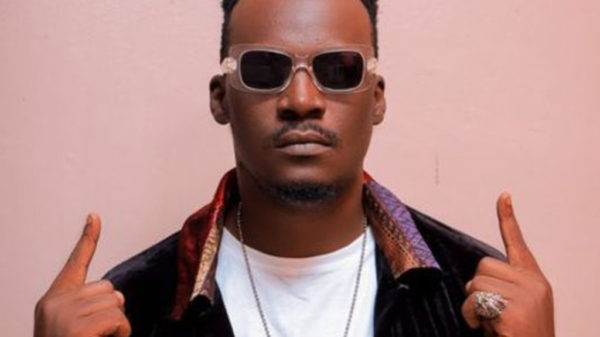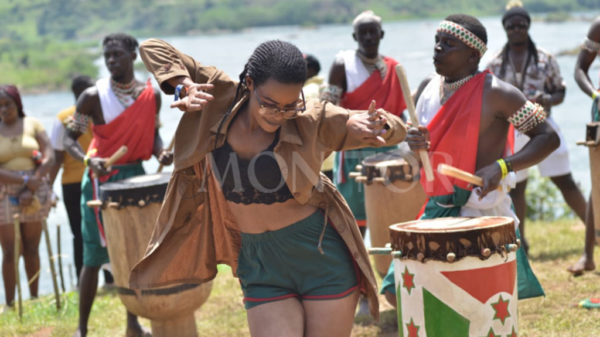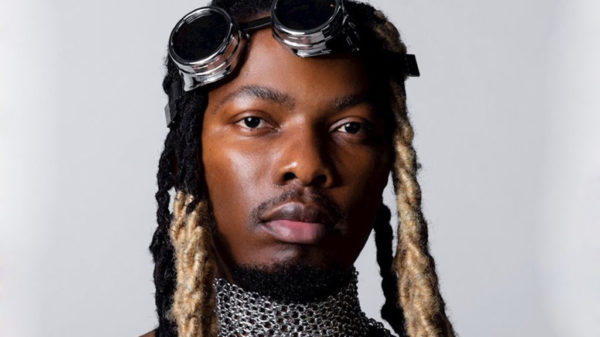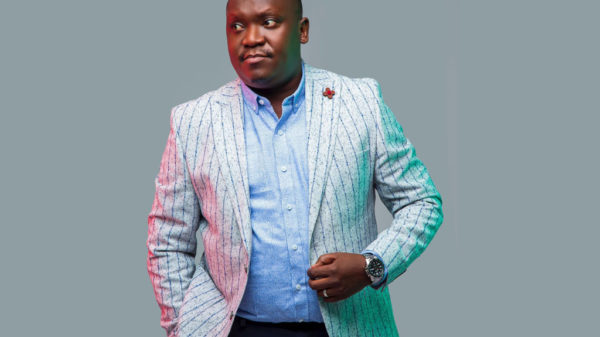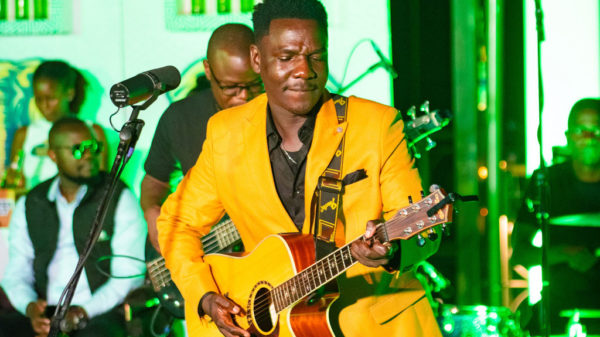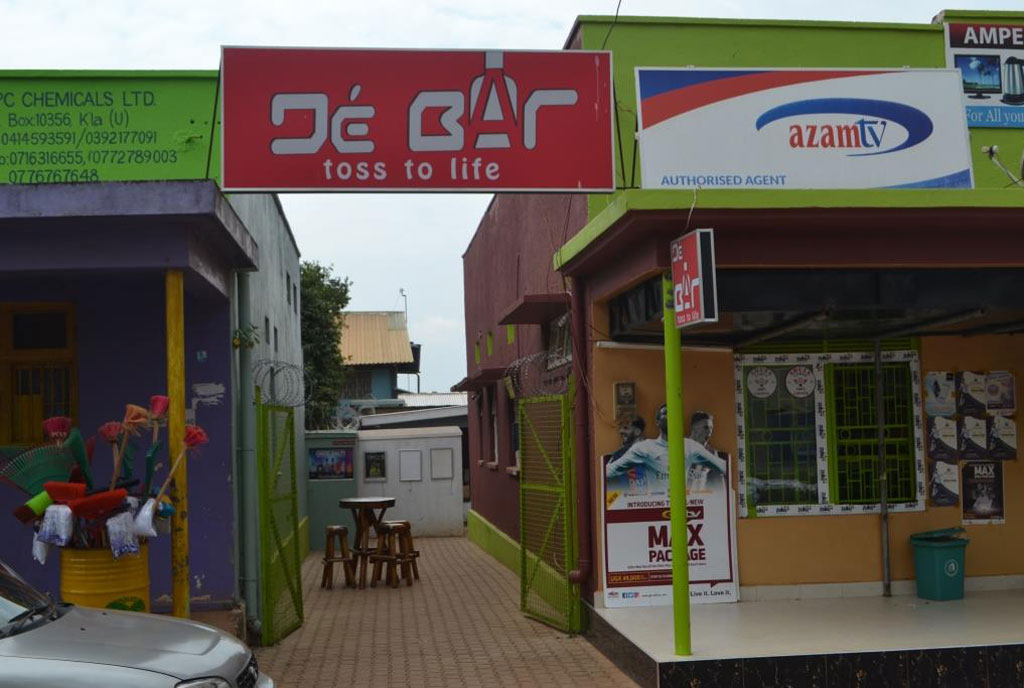Anniversary. A year after the death of arguably one of the best songwriters, composer and singer in Uganda, Derrick Wandera revisits the area to find out how the loved ones have been.
The Wednesday morning sun is bright. My clogged mind is grappling with thoughts of whether the interview will be a success or not. NTV’s Solomon Kaweesa and I, set out for Entebbe Town in Wakiso District to have a feel of what it is, a year after the demise of songbird Moses Sekibogo, aka, Mowzey Radio.
Upon reaching the town, it is easy to tell that it is business as usual. De Bar club where Mowzey got involved in the fateful brawl, which thereafter took his life, is a beehive of activity.
As we wait patiently for our source, a lorry of beer, drives passed us and stops at the entrance of the bar to offload its contents. From a distance, Mr George Egessa, the manager of the bar is seen instructing his workers on where to put the merchandise.
In the next hangout sits the source. In front of her is an empty disposable cup with slices of lemon, a glass with a colourless liquid, half-full, sits on the other side. Putting her head up, her eyes are red and at closer observation, you can tell her lips are trembling.
Ms Pamela Musimire, a single mother of two daughters perhaps in her early 40s, allegedly working with an intelligence organ or police is one of the closest friends who witnessed the horrible incident when Radio was thrown to the ground. She clasps her hands in her lap as she twiddles her thumbs but sits still and steady. Her tired looking eyes gaze at us with intrigue.
It is 3.30pm and this is the first time she has accepted to sit down for an interview with us since we met her at 9.30am.
“I don’t want to take myself back into that grime. I am trying to move on and please do not mix me into that whole mess,” she calmly states with her arms above her head.
“We don’t want anything to do with the case, we are aware it is in court already but we rather just want to know how you are coping and how you will pay tribute to your bosom friend that Radio was,” we argue, just as we have been doing since morning.
Opening up
After fulfilling all her obligations and demands, she finally allows an interview and restricts it to only 10 minutes. We move to the interview venue, Freedom Beach.
“The day Radio died, he had come to check on his building site here in Entebbe. I called him to De Bar so we could meet because he had said he wanted to see me. When he came, we sat there for some minutes before he asked to go and smoke. When he came back to the table, a half-full bottle of whisky was brought to him. This angered him (Mowzey) and he emptied all the contents on the person who had brought it to him. They started to fight and I pulled him out. When he was about to enter the car, someone pulled him from behind and lifted him up. By the time I turned, he was on the ground already unconscious, I was alarmed,” she narrates.
She says by the time they arrived at Emmanuel Hospital in Entebbe, where Mowzey got his first medical attention at around 8.30pm, “Ironically, he sweated more than he bled. We did not talk to him, and never did again.”

Godfrey Wamala alias Troy, the key suspect in the murder of Ugandan Singer Mowzey Radio. PHOTO BY EVE MUGANGA
“For his celebration,” she says energetically before continuing, “I will spend all my time of Friday in a bar. That is the best remembrance I can have of him.”
In the middle of the interview, a dark-skinned man, tall and muscular, walks into the gate. He is wearing a buggy white vest and a pair of shorts of the same colour.
“That is Rasta, the guy who knew most of Radio’s business deals including his new house,” Ms Musimire says pointing at him.
Despite being spotted at De Bar earlier, when Saturday Monitor called Mr Egessa for a comment on what happened on the fateful night, he declined, claiming he had since rented the bar to someone else.
“I rented that place to someone else some time back and I don’t know anything about it. Sorry I cannot comment,” he said.
About the death
After the death of arguably one of the best songwriters, composer and singer in Radio, the controversial question has always remained about the time and date when he actually died.
Some say he died on his way to Case Clinic, to some he died two days after his arrival at Case but they decided to announce him dead six days later, while others say he actually died at Nsambya hospital.
One Abitekaniza, commonly known as Rasta-man, the founder of Freedom Beach, alleges that Radio died in his hands at Emmanuel hospital on January 23.
“I had seen someone die before, Radio had the last convulsion when I was holding his head. Some substance came out of his mouth and he never breathed again from that time. When I asked the doctors to bring an ambulance, I knew he was gone,” Abitekaniza claims.
“From Entebbe, no one accessed Radio for the two weeks until he was announced dead. They kept giving people false hope that he was still alive and recuperating,” Abitukaniza adds.
Sqoop could not independently confirm these allegations and what the motive of the delayed communication could have been.
Dr Patrick Kaliisa, one of the doctors who received Radio and worked on him at Case Clinic, says his superiors in the medical fraternity had directed him not to comment on the subject.
“We have consulted Uganda Medical Council and they have advised us not to comment on this story. So we have nothing to say about it,” he says before hanging up the phone.
Pain and gaps in the family
Ms Jane Kasubo, Radio’s mother is busy with her house chores when we visit her home in Najjanankumbi on Entebbe Road. She says the house that Radio was building for her has since remained at the same stage he left it at.
When we visit the site in Busamaga Village in Entebbe, the house that lies on about more than half an acre has rotting poles and pieces of timber supporting it. Some pavers lie unused on the slab of the first floor of the building.
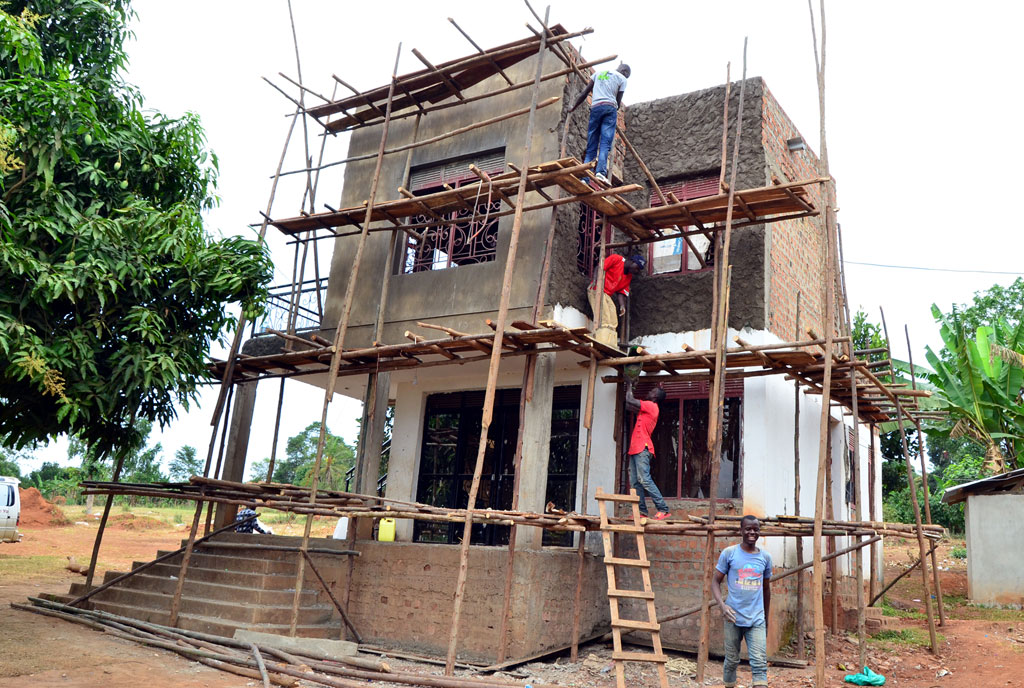
Builders constructing the house of Ms Jane Kasubo, mother to deceased local musician Mowzey Radio which he left incomplete. PHOTO BY MICHAEL KAKUMIRIZI
“This is not the only thing that has come to a standstill in this family following the death of my son. Many of the siblings and cousins that he was helping in school and university have since stopped studying and are now seated at home. We have no money and I don’t know how we are going to be helped out of this situation,” Ms Kasubo says.
She says she misses her son because he was the breadwinner and no one else can fit in his shoes. Apparently, Frank Sekibogo, Radio’s young brother is the one the family is surviving on although he does not have enough money.































